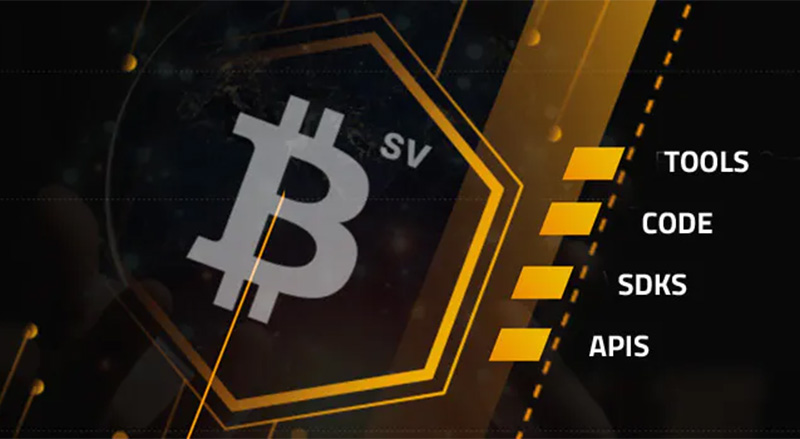The BSV enterprise blockchain has seen a huge wave of development in the past couple of years, with popular apps now powering millions of daily transactions. However, there’s been fair criticism that, as compared to some other blockchains, it’s still pretty difficult to develop on BSV.
Now, BitcoinSV.com has dropped its first round of over 50 tools. All of them have been vetted by BSV devs and are ready to use now. You can browse the tool library here.
What tools are available on BitcoinSV.com?
The BSV development tools fall into several key categories.
- API’s – Tools like Mattercloud, Blockchair, NOWNodes, and WhatsonChain enable developers to access on-chain data instantly, perform various analytical queries, utilize block hosting to store websites and data on the blockchain.
- Metrics – Coin Dance, BSVData, Bitcoin Blocks Live, and Coin Carbon Cap provide real-time data on the BSV blockchain. Historical prices, transaction volumes, and other useful data are available through these tools.
- Bitcoin Script – Script is the native Bitcoin language. Script Wiki is a list of opcodes, commands, and functions. sCrypt is a high-level smart contract language for BSV.
- BSV Libraries – In this section, you’ll find a suite of developer tools for creating apps and games on BSV. For example, Gate2Chain is a development suite that allows you to connect apps, websites, games, and other systems to the BSV blockchain. You’ll find applications that will enable you to build in Rust, Java, Elixir, Python, Dart, and other languages.
- Education – This is where developers can learn about BSV and its true capabilities. From the Bitcoin Wiki to the BSV Academy to Dr. Craig Wright and Ryan X. Charles’ video series called Theory of Bitcoin, there’s a treasure trove of information in this section.
- Reading – These tools allow reading from the blockchain. For example, MetaShard allows easy access to data stored on the blockchain. It also allows users to store data on BSV.
- Standards & Protocols – BSV has an extremely well-developed library of technical standards and legal specifications. In this section, you can learn about the Travel Rule, Merkle proofs, SPC Channels, and much more.
- Testing Tools – Use PewPew to stress test apps, the BSV testnet faucet to provide tokens to testnet users who are running a stake pool or other node, or the Scaling Test Network (STN) to test large blocks and transaction volumes.
- Tokens & Smart Contract – Issue tokens or build apps and smart contracts on protocols like RUN, STAS, Bitcoin Computer, SensibleSV, and Tokenized.
- Transaction Libraries – Use the Minecraft javascript library to interact with miner APIs, Fileplay to post data or upload files to BSV, or Merchant API to get policy and fee quotes before submitting transactions. This is just scratching the surface of the tools in this section.
- Wallet SDKs – This is where you’ll connect the apps and tools you’ve built to popular BSV wallets such as Handcash, Moneybutton, Relaysia, and others.
Patrick Prinz, managing director of BSV Blockchain Association, had this to say about the suite of tools:
“The usage of the BSV protocol is seeing strong growth and transaction count outpacing the total accumulated competition. And this while BSV is still not making it particularly easy to start developing on the protocol, in all honesty. SDKs, libraries and dev tools are stored in a fragmented manner and it is hard to find the required information to begin with. Also there are gaps in tooling where other blockchain ecosystems have done a better job.”
He added, “While it is important to remember that Bitcoin’s potential was only unleashed as late as beginning 2020 through the Genesis update, we as an organization are determined to give newly joining developers and entrepreneurs a welcoming and information-rich onboarding experience. A central place for easy navigation through existing tools and libraries is a start. Other services shall follow over the coming weeks and months. We encourage all ecosystem players to contribute.”
